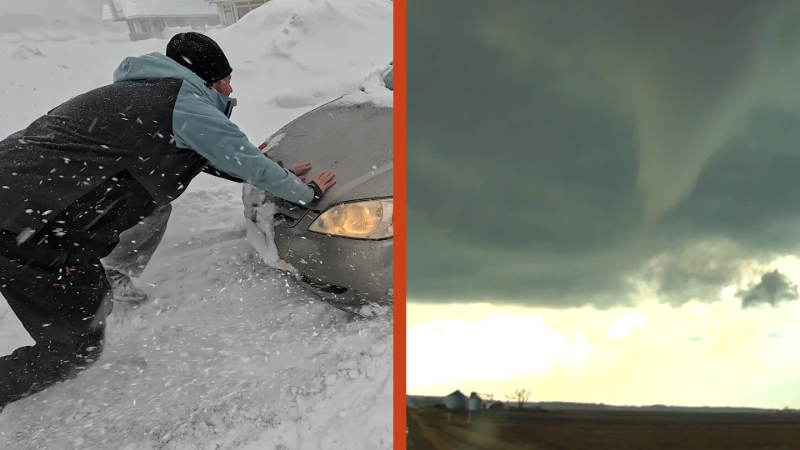Heat, humidity to return to the East
Summertime heat and humidity are set to return quickly to the Northeast, following a brief cooldown earlier in the week.
So far in 2025, there have been 13 hot car fatalities reported in the U.S. Six of those fatalities have occurred since June 22. Amber Rollins of Kids and Car Safety explains the dangers of hot cars.
The Fourth of July was near ideal for outdoor activities with temperatures near the historical average and low humidity in much of the Northeast. The only caveats were a bit of haze in parts of eastern Ohio and western Pennsylvania from Canadian wildfire smoke and a few showers in northern Maine.
Heat and humidity to peak in the early week but not everywhere
Hot and humid air will quickly overtake much of the interior portions of the mid-Atlantic and New England. This will not rival the heat wave from last month, but temperatures will again be above historical averages, and some record highs may be challenged.

Along the coast in the mid-Atlantic, temperatures may be a bit lower, but the humidity could actually be higher. This will be due to Chantal that will spread rain and clouds northward from the Southeast.
Chantal made landfall early Sunday morning, and though it will continue to lose wind intensity as it moves northward and northeastward, the aforementioned clouds and potentially rain will cause temperatures to be lower in those locations.

This heat wave not be as intense and widespread as the one in June, and it won't last as long. Clouds and thunderstorms are likely to spread over more of the Northeast starting Tuesday. This will keep humidity high but hold temperatures down.
Overall, temperatures will be closer to historical averages. However, the abundant amount of moisture in the air will still make it very muggy. In addition, any showers and thunderstorms will impact outdoor plans. Even after Chantal dissipates, showers and thunderstorms with high levels of humidity will likely remain through the middle and potentially even the end of this week.
Despite the upcoming heat being fairly short-lived, the historical averages for temperatures do not typically peak until late July or early August.
Want next-level safety, ad-free? Unlock advanced, hyperlocal severe weather alerts when you subscribe to Premium+ on the AccuWeather app. AccuWeather Alerts™ are prompted by our expert meteorologists who monitor and analyze dangerous weather risks 24/7 to keep you and your family safe.
Report a Typo














